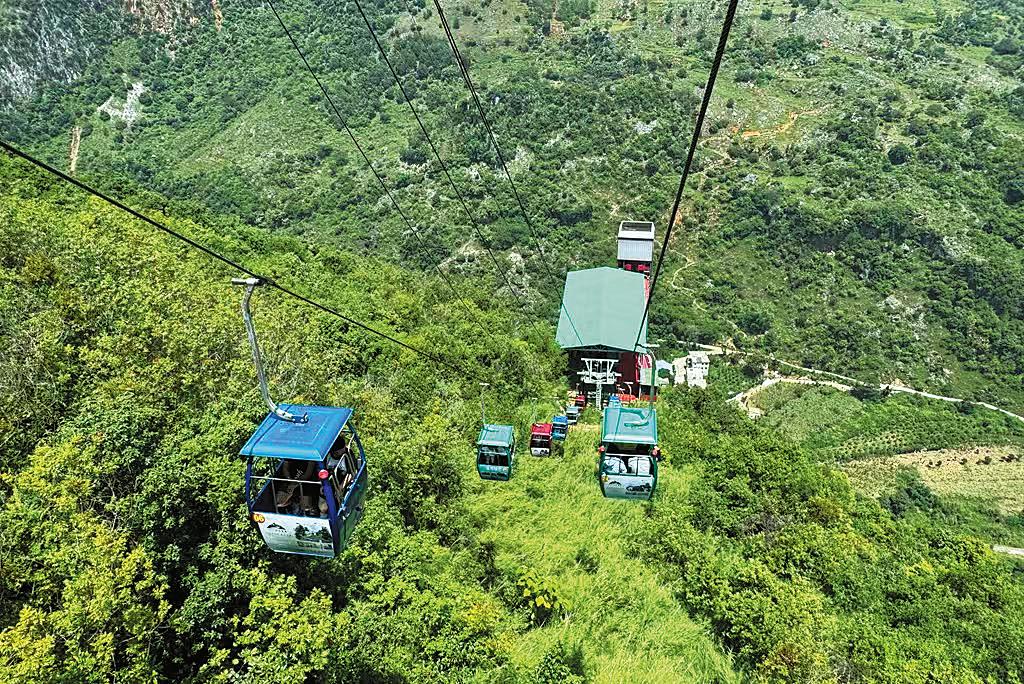'Aerial school bus' prevents perilous trips
Remote village kids used to climb three hours to get to class


For many schoolkids, just dragging themselves out of bed in the morning can be a near impossible challenge.
However, for the children of Nizhuhe village, located at the bottom of a steep and craggy canyon, getting out of bed used to be followed by a perilous more than three-hour ascent up the cliff face and across several rivers, before arriving at the classroom to the start the school day.
However, in the past couple of years that situation has all changed for the children of the village located in Southwest China's Yunnan province.
The development of the Nizhuhe Grand Canyon scenic area has meant that new infrastructure has been put in place, and kids now only need to take a 268-meter cliffside elevator, followed by a cable car and then a bus to reach their school at the top of the canyon. The three-hour obstacle course has now become a pleasant 30-minute scenic ride.
All in all, their journey from their village to Guanzhai Primary School takes them from an elevation of 1,100 meters to 1,650 meters.
With development of the scenic area beginning in 2017, this "aerial school bus" became available in 2022.
"In the past, there were many areas with no roads. My older son and I had to climb steep cliffs with slopes exceeding 70 degrees," said Zhao Suzhen, a villager and a mother of two boys in Nizhuhe.
"Villagers drilled holes in the cliff face so that they could get footholds and handgrips for climbing," she said, adding they also used chains.
Her second son Lei Xin is also studying at the school. Zhao said Lei and his friends run to the elevator in excitement and enjoy watching the Nizhu River below them as the elevator ascends.
"I was a bit scared at first, but now I find it very fun," Lei said, adding that taking the elevator and cable car to school is much more convenient than climbing over rocks.
As Guanzhai Primary is a boarding school, every week, the children from Nizhuhe village commute using the "aerial school bus".
Yang Jie, Party secretary of Puli township, where the village is located, is proud of the local development.
"During ancient times, ancestors of the village moved deep down the mountains to hide from war. It's difficult to enter and leave, even for adults," she said.
"In the past, two to three men were required to escort the children to school."
Acknowledging that the situation was unacceptable, in 2014, Yang and her colleagues invited experts to conduct surveys and to establish a plan to create walkways from the village below to the school above, but no solution was feasible.
- 'Aerial school bus' prevents perilous trips
- Star athletes fighting 'fandom culture' gain attention
- Advisers foresee Shanghai as humanoid robotics hub
- Mainland to resume group tour services for Fujian, Shanghai residents to Taiwan
- Residents in Shanghai fund own building renovation
- Party role an essential component of grassroots governance




































